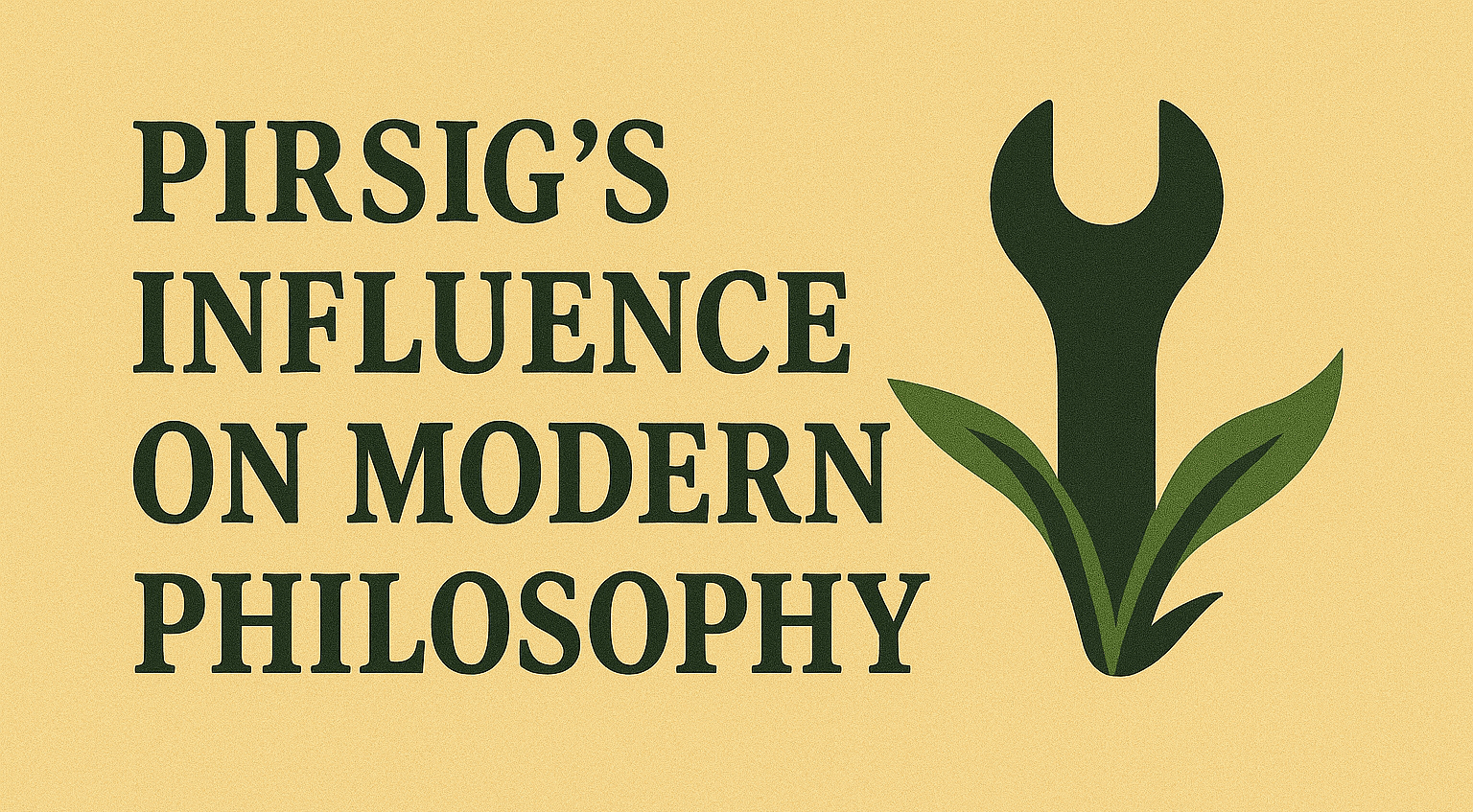An examination of how Pirsig’s Metaphysics of Quality has influenced contemporary philosophical thought and its intersections with other philosophical frameworks.
Robert M. Pirsig’s Metaphysics of Quality (MOQ), introduced through his seminal works Zen and the Art of Motorcycle Maintenance and Lila: An Inquiry into Morals, has left an indelible mark on contemporary philosophical thought. Pirsig’s unique integration of Eastern and Western philosophical traditions, along with his innovative approach to understanding value and reality, has influenced various philosophical frameworks and sparked new discussions about the nature of quality and existence. This article examines Pirsig’s influence on modern philosophy and explores its intersections with other philosophical paradigms.
The Core Concepts of the Metaphysics of Quality
Pirsig’s Metaphysics of Quality posits that quality is the fundamental building block of the universe, transcending the traditional subject-object dichotomy. He divides quality into two categories: static quality, which encompasses the structured and stable aspects of reality, and dynamic quality, which represents the innovative and changing forces in the world. This dual framework provides a comprehensive lens through which to examine the interplay of stability and change, tradition and innovation.
Influence on Contemporary Philosophical Thought
- Rejection of the Subject-Object Dichotomy
Pirsig’s rejection of the subject-object dichotomy has resonated with many contemporary philosophers who seek to move beyond dualistic thinking. By proposing that quality precedes and unites subject and object, Pirsig offers a holistic approach that challenges the fragmented perspectives often found in Western philosophy. This idea has parallels in phenomenology, particularly in the works of philosophers like Maurice Merleau-Ponty, who emphasize the inseparability of perception and the perceived world.
- Integration of Eastern and Western Philosophies
Pirsig’s integration of Eastern philosophical concepts, particularly from Zen Buddhism, with Western analytical thought, has enriched contemporary philosophical discourse. His emphasis on direct experience and the fluidity of reality aligns with Eastern philosophies that prioritize the present moment and the interconnectedness of all things. This synthesis has inspired philosophers to explore more integrative approaches, bridging gaps between different philosophical traditions.
- Emphasis on Value and Quality
The centrality of value and quality in Pirsig’s philosophy has influenced discussions in ethics and aesthetics. By arguing that quality is the primary reality, Pirsig shifts the focus from objective truths to the inherent value present in all aspects of life. This perspective has implications for ethical theories that prioritize the intrinsic worth of actions and experiences, as well as for aesthetic theories that explore the nature of beauty and artistic value.
- Dynamic vs. Static Quality
Pirsig’s distinction between static and dynamic quality has provided a useful framework for understanding the balance between order and change. This concept has applications in social and political philosophy, where theorists examine the tension between preserving traditions and fostering innovation. Pirsig’s ideas offer a way to navigate these tensions, advocating for a dynamic equilibrium that promotes both stability and progress.
Intersections with Other Philosophical Frameworks
- Process Philosophy
Pirsig’s emphasis on dynamic quality and the constant flux of reality aligns with process philosophy, particularly the works of Alfred North Whitehead. Both Pirsig and Whitehead view reality as a process of becoming rather than a collection of static entities. This shared perspective highlights the importance of change and evolution in understanding the nature of existence.
- Pragmatism
The Metaphysics of Quality also intersects with American pragmatism, especially the ideas of William James and John Dewey. Pirsig’s focus on practical applications of philosophical concepts and his rejection of rigid dichotomies resonate with pragmatist principles. Pragmatism’s emphasis on the utility and experiential basis of knowledge complements Pirsig’s view that quality and value are central to understanding reality.
- Existentialism
Pirsig’s exploration of personal meaning and the quest for quality in life parallels existentialist themes found in the works of Jean-Paul Sartre and Albert Camus. His emphasis on individual experience and the search for authenticity echoes existentialist concerns with personal freedom and the construction of meaning in an often chaotic world.
- Phenomenology
Pirsig’s focus on immediate experience and the pre-conceptual nature of quality aligns with phenomenological approaches that prioritize lived experience over abstract theorization. Phenomenologists like Edmund Husserl and Martin Heidegger emphasize the importance of perception and consciousness, themes that resonate with Pirsig’s exploration of quality as a fundamental aspect of human experience.
Conclusion
Robert M. Pirsig’s Metaphysics of Quality has made significant contributions to contemporary philosophical thought, challenging traditional paradigms and offering a fresh perspective on the nature of reality and value. His integration of Eastern and Western philosophies, emphasis on the centrality of quality, and innovative approach to the subject-object dichotomy have influenced a wide range of philosophical discussions. By intersecting with various philosophical frameworks, including process philosophy, pragmatism, existentialism, and phenomenology, Pirsig’s ideas continue to inspire and provoke thoughtful exploration in the quest to understand and enhance the human experience. His legacy as a philosopher who bridged diverse traditions and offered a holistic view of quality remains impactful, guiding modern thinkers toward a more integrated and dynamic understanding of reality.
